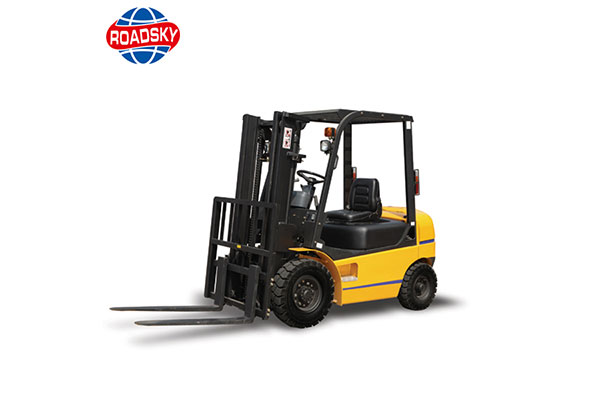How Much Does a Forklift Weigh? The Key Factors
Forklifts are essential tools in various industries, from warehouses and construction sites to manufacturing facilities and logistics operations. They are designed to lift and transport heavy loads, making them indispensable for efficient material handling. One common question that arises when dealing with forkllifts is, “How much does a forklift weigh?” In this article, we’ll explore the key factors that influence a forklift’s weight and discuss the different types of forklifts.

Understanding Forklift Weight
The weight of a forklift can vary significantly depending on several factors, making it essential to consider these factors when dealing with or transporting forklifts. Here are some of the primary factors that influence a forklift’s weight:
- Type and Model: Forklifts come in various types and models, each designed for specific applications. Electric forklifts tend to be lighter than their internal combustion engine (ICE) counterparts due to the weight of the batteries. Similarly, a small, compact forklift will weigh less than a larger, heavy-duty model.
- Load Capacity: The maximum load capacity of a forklift plays a significant role in its weight. Heavy-duty forklifts designed to lift several tons of materials will be much heavier than light-duty forklifts with lower load capacities.
- Attachments: Forklifts can be equipped with a wide range of attachments, such as forks, clamps, or buckets, to handle various materials. The weight of these attachments can add to the overall weight of the forklift.
- Fuel Type: As mentioned earlier, electric forklifts are generally lighter than ICE forklifts due to the weight of their batteries. ICE forklifts run on diesel, propane, or gasoline, and the type of fuel they use can influence their weight.
- Counterweight: Forklifts have a counterweight at the rear to balance the weight of the load being lifted. The counterweight is an essential component that contributes significantly to the forklift’s overall weight.
Average Forklift Weights
While the weight of a forklift can vary based on the factors mentioned above, it’s useful to provide some general guidelines for different types of forklifts:
- Electric Forklifts: Small electric forklifts can weigh as little as 3,000 pounds, while larger, heavy-duty electric forklifts may weigh up to 10,000 pounds or more.
- ICE Forklifts: ICE forklifts can range from 5,000 pounds for smaller models to over 20,000 pounds for larger, high-capacity forklifts.
- Rough Terrain Forklifts: These forklifts, designed for outdoor use, are usually on the heavier side, with weights starting at around 10,000 pounds and going up to 30,000 pounds or more for the largest models.
It’s important to note that these are average weight ranges and that specific forklifts may fall outside these ranges based on their unique specifications and configurations.
Conclusion
The weight of a forklift is influenced by several factors, including its type, load capacity, attachments, fuel type, and counterweight. When dealing with forklifts, it’s crucial to understand their weight to ensure safe operation, transportation, and storage. Whether you’re a forklift operator, manager of a warehouse, or involved in logistics, being aware of the factors that determine a forklift’s weight will help you make informed decisions and ensure the safety of your operations.

